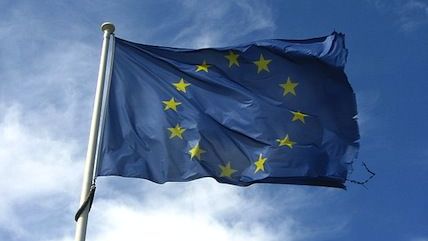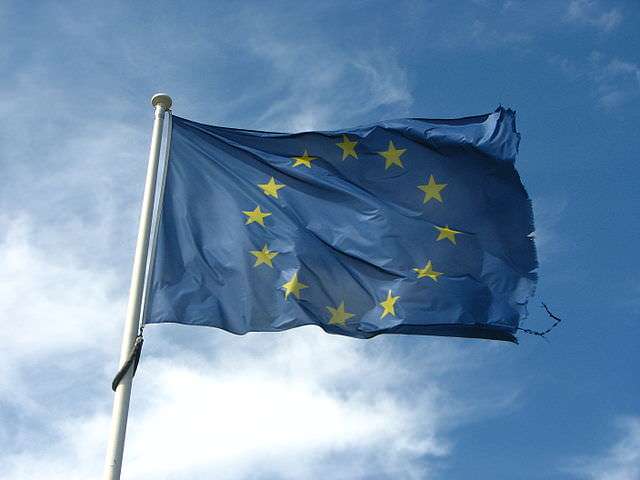Do the European Elections Matter?


Historically, elections to the European Parliament haven't mattered much, even to Europeans. Their main role has been to give disgruntled voters a chance to deliver a good shellacking to the parties in charge of national governments. Like mid-terms, then, but with little potential to alter the balance of power or sway the course of policy. The fundamental indifference of Europe's voters has been reflected in turnout percentages, which have fallen at every election since the European Parliament was established in 1979. Most expect turnout to reach a new low this year, falling below the 43 percent figure from 2009.
To a certain extent, this lack of enthusiasm is hard-wired into the structure of the European Union (E.U.). For starters, the European Parliament has not traditionally had much power. It still can't initiate legislation, which is the sole preserve of the European Commission, the EU's permanent bureaucracy. What's more, the European Parliament—which houses representatives from more than 100 national parties, grouped into 12 European parties, and then grouped again into seven different alliances—feels very remote to most voters. What power the European Parliament does have is often exercised through back-room deals concluded by politicians the voters don't know, on behalf of parties and alliances they've never heard of. A vibrant democracy this most certainly is not.
And yet the 2014 elections—which begin on Thursday in the UK and the Netherlands—may be different. For one thing, the 2009 Lisbon Treaty extended the European Parliament's power to approve, amend, or block legislation to 40 additional areas of policy. It also gave the European Parliament a greater say on the EU budget, as well as a range of international agreements (including, for example, the proposed U.S.–E.U. trade deal). Legislators have not been shy about exercising their new powers: The Financial Times notes that they now wield more influence than their limited constitutional role would suggest.
The latest power-grab involves each parliamentary group nominating a "lead candidate" in the elections, and demanding that the victor be made president of the European Commission. It remains to be seen whether the European Council—consisting of the heads of the E.U.'s 28 national governments—will accept this usurpation of its authority, but if it does, the consequences for E.U. policy could be significant. The European Commission has traditionally been a force for liberalization and market competition; the European Parliament, by contrast, tends to prefer regulation and protectionism.
This matters because the E.U. is at an important crossroads in policy terms. The eurozone crisis may have abated for now, but growth remains sluggish, unemployment is shockingly high, and a Japanese-style "lost decade" looms on the horizon. And that's to say nothing of renewed geopolitical instability in the E.U.'s own backyard. Europe desperately needs to liberalize its labor and consumer markets, strengthen its trade links with other economies (not least the U.S.), and develop an energy policy that doesn't leave it reliant on the Kremlin to keep the lights on. For better or worse, the European election results will go some way to determining whether any of this is possible.
One crucial factor will be the electoral performance of Europe's insurgent populist parties, which may end up controlling more than a quarter of the seats in parliament. These parties do not constitute an homogenous political force—Italy's anti-establishment but relatively liberal Five Star Movement has little in common with Greece's neofascist Golden Dawn, for instance. But for the most part, Europe's populists are skeptical of European integration, suspicious of globalization, and hostile to immigration. The most extreme among them can be downright nativist. Their rise to prominence gives libertarians precious little to cheer: The result can only be a Europe that is more illiberal and less free market.
So do the European elections matter? In so far as they give some indication of the economic prospects of the world's biggest market, the fate of the U.S.–E.U. trade deal, and the future complexion of a political union serving more than 500 million people, the answer to that question must be "yes."
Tom Clougherty is managing editor at Reason Foundation.
Editor's Note: As of February 29, 2024, commenting privileges on reason.com posts are limited to Reason Plus subscribers. Past commenters are grandfathered in for a temporary period. Subscribe here to preserve your ability to comment. Your Reason Plus subscription also gives you an ad-free version of reason.com, along with full access to the digital edition and archives of Reason magazine. We request that comments be civil and on-topic. We do not moderate or assume any responsibility for comments, which are owned by the readers who post them. Comments do not represent the views of reason.com or Reason Foundation. We reserve the right to delete any comment and ban commenters for any reason at any time. Comments may only be edited within 5 minutes of posting. Report abuses.
Please to post comments


They matter because it's important to know the will of the people before you thwart it.
And to really show them, you can go ahead and elect a new people. See, e.g., the UK.
Even if unanimous, 43% wouldn't express the will of the people, other than that people have more important things to do on election day.
Because they help people believe they aren't being ruled by unelected bureaucrats, which keeps people from rioting and leaving the EU.
Thrilling.
Given the body count of Europe's various incarnations of internationalism, I would be too.
Uh, why? Latin America has not seen it necessary to form a political union in order to pursue broadly more liberal policies, and its polities are far more united by history, language, culture and a lack of wars than the members of the EU.
See, Latin America didn't have WWII and its only the EU that stands between peace on the continent and another German attempt at world domination.
Seriously - one of the EU's attempts at justifying its existence is they not only claim credit for there being no wars in Europe since WW2 but that the EU is *necessary* for that state to continue.
Sure, I understand that -- but in 2014 it should be clear that this is not going to happen (and in all frankness, the EU as it stands is something like if France decided to regulate Europe through German bureaucrats).
I just don't find "EU or else WWIII" arguments compelling.
You understand that - and so do most rational people - but the EU *still* uses that as a justification for not only their continued existence but for greater 'unification' (read: more control transferred to the EU).
Plus they tend to forget Great Britain which is *not* a member of the EU (but is part of the EEC) - Brits freely trade (and allow free immigration) with the other EU countries *without* the tight integration of the EU.
The UK is a member of the EU : the EEC does not exist anymore.
The UK is not a member of the euro-zone (monetary union) and the Schengen Area (border control free zone), but participate to the EU and to the European elections.
They matter a damn sight more than the national elections. Given that legislation passed by the EU parliament must be implemented *as-is* by the member states, with no modification or discussion, I'd say the EU has more control over the day-to-day actions of Europeans than their national governments.
Good time for the US to leave NATO.
"Do the European Elections Matter?"
Yes. To the people getting the retirement packages.
No elections matter. GIGO.
That's insane.
No, it can also mean the end of the European Union or a major devolution in its powers, which could very well make Europe more liberal and more free market by eliminating the ability to centrally coordinate stifling regulation.
If governments had more long-term vision and economic sense, more would resist joining the Euro and only participate in the Schengen